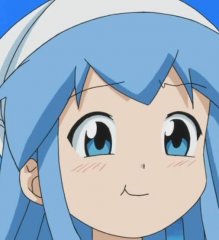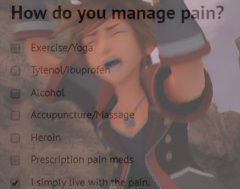"
Gee Square Enix, how come Nintendo lets you have TWO DLC characters in Smash Ultimate?" the other companies ask, jealousy clearly apparent in their voices.
Ever since the surprising success of Octopath Traveler, Nintendo and Square Enix have reached a second golden age in their corporate relations. To use less hyperbole, they've been closer than they have been in recent years, with the closest comparisons being the DS-3DS and 16-bit eras. In June 2018, prior to the large push of Square Enix games on Nintendo consoles, Square Enix announced both a desire to
create more original games on the Switch and
the creation of a company division to do just that. And clearly since then, Square Enix support of the Switch has been immense. To name titles that have come out since
Octopath Traveler:
- The World Ends With You: Final Remix*
- Dragon Quest Builders 2* (preceded by Builders* approximately 3-4 months before Octopath*)
- Chocobo's Mystery Dungeon
- Oninaki
- Ports of Final Fantasy VII, VIII, IV, X, X-2, and XII
- Dragon Quest XIS: Echoes of an Elusive Age Definitive Edition*
- Enhanced ports of Dragon Quest*, Dragon Quest II*, and Dragon Quest III*
- Romancing SaGa 2 and 3
- Collection of Mana (containing Final Fantasy Adventure/Mystic Quest, Secret of Mana, and the first English localization of Trials of Mana)
- most recently, the Trials of Mana remake
- and upcoming, Final Fantasy Crystal Chronicles Remastered
While many of these games are multiplatform alongside PS4 and Xbox, it's worth noting that all games accompanied by an asterisk* were published by Nintendo outside of Japan. Also, while Nintendo is known to take publishing rights for many series, historically they've only done so prominently for two companies: Level-5 (primarily during the DS era) and Square Enix (to this day).
So, Nintendo and Square Enix have a whole lot of corporate synergy right now; at least more so than other companies who simply put games on Nintendo platforms. This would certainly facilitate negotiations if they were to occur. Negotiations would be further facilitated by the fact that a majority of significant figures have already been brought to the table at one point or another. Tetsuya Normura, director of The World Ends With You, Kingdom Hearts, and most recently Final Fantasy 7 Remake,
worked with Sakurai on Cloud in Sm4sh and Ultimate (assuming negotiations were concurrent as rumored), and Yuji Horii, director of the Dragon Quest series,
worked with Sakurai on Hero in Fighters Pass 1. Corporate leadership would have played a role in both rounds of negotiations, which means that there's precedent, and from that a set process Nintendo could rely on to streamline negotiations to get a Square Enix character or characters on the list for a potential Fighters Pass 2 inclusion.
And before anyone says "
but tehponycorn! square enix is stingy!" we all know that's not the truth,
so don't even start.
I'll take time to address the counter argument of Nintendo being close to a lot of companies. This is certainly true, but most lack the consistency and notability of Nintendo and Square Enix's relationship. Bandai Namco and Koei Tecmo are both worth mentioning, as they've helped Nintendo work on games internally. Microsoft has been good about sharing exclusives such as
Cuphead and the
Ori series, and Capcom's port frenzy of the
Mega Man,
Resident Evil, and
Devil May Cry series, with their port of
Devil May Cry 3 being the definitive edition, certainly bring to mind Square Enix's similar port frenzy. These companies are certainly worth noting in speculation, but don't necessarily take away from Square Enix's chance of getting their character(s) on
the list(tm). If the end goal is simply getting on the list for Sakurai and/or Nintendo to choose, then the limiting factor is simply what characters Nintendo can/can't negotiate for. Theoretically, Nintendo could negotiate for as many characters as they'd like. The reason I turn to Square Enix specifically is the fact that they still have a multitude of iconic series and characters to draw from that would generate significant hype, corporate promotion, and sales in Fighters Pass 2.
So, the question, "why a Square Enix character
again" could be simplified down to ease of negotiations and Square Enix still having characters Nintendo wants in Smash. So then, our next question becomes:
Who?



